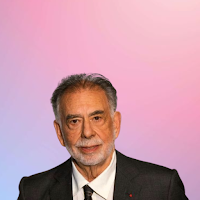Legendary filmmaker Francis Ford Coppola made a resounding statement at the 77th Cannes Film Festival with his latest work, Megalopolis. Despite the film's delayed press conference, Coppola's spirits were high as he addressed inquiries about the sci-fi epic, which premiered to a mix of critical acclaim and controversy.
In a packed room, Coppola, aged 85, expressed relief and joy at the applause received during Megalopolis' premiere. The film, a culmination of decades-long effort and a $120 million investment from Coppola's own pocket, stirred both admiration and speculation, with reports of tumultuous production and allegations surfacing.
Addressing questions regarding the film's colossal budget, Coppola dismissed concerns about financial legacy, emphasizing the importance of creative endeavor over monetary gain. Flanked by family and actors whom he considers as such, Coppola's commitment to his vision shone through, despite the challenges faced during production.
Actor Giancarlo Esposito, reflecting on his experience, praised Coppola's enigmatic approach, highlighting the film's experimental essence. Adam Driver, instrumental in the editing process, lauded Megalopolis as a groundbreaking endeavor, predicting its historical significance in cinematic narrative.
Megalopolis, rich with political allegory, draws parallels between contemporary America and the decline of ancient Rome. With Shia LaBeouf portraying a Trump-esque figure, Coppola urges artistic introspection into societal woes, suggesting that artists hold the key to illuminating the path forward.
Engaging with Hollywood conservative figure Jon Voight, Coppola navigated ideological differences, emphasizing a shared concern for future generations. Voight's endorsement of the film's message underscores its universal appeal beyond partisan lines.
While Megalopolis seeks U.S. distribution, Coppola remains optimistic about its future, hinting at potential tech industry involvement. As the film marks Coppola's return to Cannes competition after 45 years, parallels with his iconic work, Apocalypse Now, emerge, reflecting on past controversies and triumphs.
In a testament to artistic autonomy, Coppola asserts his prerogative to re-edit his films, a practice he reserves for select works. Despite speculation about revisiting Megalopolis in the future, Coppola's focus shifts towards new creative ventures, epitomizing a lifelong dedication to cinematic expression.
Francis Ford Coppola's presence at Cannes, both with Megalopolis and in retrospective, reaffirms his status as a cinematic luminary. With his latest offering sparking dialogue on art, politics, and the human condition, Coppola's legacy transcends individual films, leaving an indelible mark on the landscape of cinema.





0 Comments